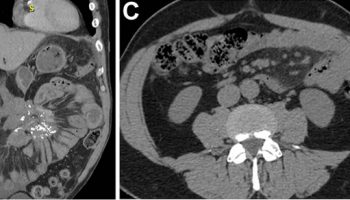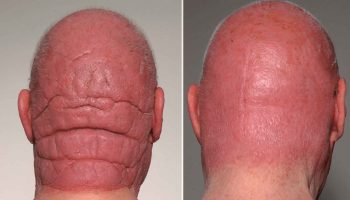What is lethargy
Lethargy is another word for fatigue, which is a feeling of weariness, tiredness, exhaustion or lack of energy. Lethargy is different from drowsiness. Drowsiness is feeling the need to sleep. Lethargy is a lack of energy and motivation. Drowsiness and apathy (a feeling of not caring about what happens) can be symptoms that go along with lethargy.
Lethargy can be a normal and important response to physical activity, emotional stress, boredom, or lack of sleep. Lethargy is a common symptom, and it is usually not due to a serious disease. But it can be a sign of a more serious mental or physical condition. When lethargy is not relieved by enough sleep, good nutrition, or a low-stress environment, it should be evaluated by your health care provider.
You may feel lethargy because of too much or not enough activity. Lethargy can also come from stress, lack of sleep, boredom, and poor diet. Many medical problems, such as viral infections, can cause lethargy. Emotional problems, especially depression, are often the cause of lethargy.
Lethargy is most often a symptom of another problem. Treatment for lethargy depends on the cause. For example, if you have lethargy because you have a certain health problem, treating this problem also treats your lethargy. If depression or anxiety is the cause, treatment may help.
Here are some tips for reducing lethargy:
- Get enough sleep each night.
- Make sure your diet is healthy and well-balanced, and drink plenty of water throughout the day.
- Exercise regularly.
- Learn better ways to relax. Try yoga or meditation.
- Maintain a reasonable work and personal schedule.
- Change or reduce your stressors, if possible. For example, take a vacation or resolve relationship problems.
- Take a multivitamin. Talk to your provider about what is best for you.
- Avoid alcohol, nicotine, and drug use.
If you have long-term (chronic) pain or depression, treating it often helps the lethargy. Be aware that some antidepressant drugs may cause or worsen lethargy. If your drug is one of these, your provider may have to adjust the dosage or switch you to another drug. DO NOT stop or change any medicines without first talking to your provider.
Stimulants (including caffeine) are not effective treatments for lethargy. They can make the problem worse when they are stopped. Sedatives also tend to worsen lethargy.
Get emergency help if your lethargy is related to a mental health problem and your symptoms also include:
- Thoughts of harming yourself or of suicide
- Concern that you may harm someone else
Also get emergency care if your lethargy is accompanied by any of the following:
- Chest pain
- Shortness of breath
- Irregular or fast heartbeat
- Feeling that you might pass out
- Severe abdominal, pelvic or back pain
Seek immediate medical attention
Get someone to take you to an emergency room or urgent care if lethargy is accompanied by:
- Abnormal bleeding, including bleeding from your rectum or vomiting blood
- Severe headache
See your doctor right away if you have any of the following:
- Confusion or dizziness
- Blurred vision
- Little or no urine, or recent swelling and weight gain
See your doctor for an appointment if you have any of the following:
- Unexplained weakness or lethargy, especially if you also have a fever or unintentional weight loss
- Constipation, dry skin, weight gain, or you cannot tolerate cold
- Wake up and fall back to sleep many times during the night
- Headaches all the time
- Are taking medicines, prescribed or non-prescribed, or using drugs that may cause lethargy or drowsiness
- Feel sad or depressed
- Insomnia
Call for an appointment with your doctor if your lethargy has persisted for two or more weeks despite making an effort to rest, reduce stress, choose a healthy diet and drink plenty of fluids.
Lethargy causes
Most of the time lethargy can be traced to one or more of your habits or routines, particularly lack of exercise. It’s also commonly related to depression. On occasion, lethargy is a symptom of other underlying conditions that require medical treatment.
There are many possible causes of lethargy, including:
- Acute liver failure
- Anemia (including iron deficiency anemia)
- Anxiety disorders
- Cancer
- Chronic fatigue syndrome
- Chronic infection or inflammation
- Chronic kidney disease
- Concussion
- COPD (chronic obstructive pulmonary disease)
- Depression (major depressive disorder)
- Diabetes
- Emphysema
- Fibromyalgia
- Grief
- Heart disease
- Hyperthyroidism (overactive thyroid)
- Hypothyroidism (underactive thyroid)
- Inflammatory bowel disease (IBD)
- Iron deficiency (without anemia)
- Medications and treatments, such as sedatives, chemotherapy, radiation therapy, pain drugs, heart drugs and antidepressants
- Multiple sclerosis
- Obesity
- Pain that’s persistent
- Sleep disorders such as insomnia, obstructive sleep apnea, or narcolepsy
- Stress
- Thyroid gland that is underactive or overactive
- Traumatic brain injury
- Use of alcohol or drugs, such as cocaine or narcotics, especially with regular use
Lifestyle factors
Taking an honest inventory of things that might be responsible for your lethargy is often the first step toward relief. lethargy may be related to:
- Use of alcohol or drugs
- Excess physical activity
- Jet lag disorder
- Lack of physical activity
- Lack of sleep
- Medications, such as antihistamines, cough medicines
- Unhealthy eating habits
Lethargy can also occur with the following illnesses:
- Addison disease (a disorder that occurs when the adrenal glands don’t produce enough hormones)
- Anorexia or other eating disorders
- Arthritis, including juvenile rheumatoid arthritis
- Autoimmune diseases such as systemic lupus erythematosus
- Cancer
- Heart failure
- Diabetes
- Fibromyalgia
- Infection, especially one that takes a long time to recover from or treat, such as bacterial endocarditis (infection of the heart muscle or valves), parasitic infections, hepatitis, HIV/AIDS, tuberculosis, and mononucleosis
- Kidney disease
- Liver disease
- Malnutrition
Certain medicines may also cause drowsiness or lethargy, including antihistamines for allergies, blood pressure medicines, sleeping pills, steroids, and diuretics (water pills).
Chronic lethargy syndrome (CFS) is a condition in which symptoms of lethargy persist for at least 6 months and do not resolve with rest. The lethargy may be worsened with physical activity or mental stress. It is diagnosed based on the presence of a specific group of symptoms and after all other possible causes of lethargy are ruled out.
Lethargy diagnosis
Your doctor will perform a complete physical examination, paying special attention to your heart, lymph nodes, thyroid, abdomen, and nervous system. You will be asked about your medical history, lethargy symptoms, and your lifestyle, habits, and feelings.
Tests that may be ordered include the following:
- Blood tests to check for anemia, diabetes, inflammatory diseases, and possible infection
- Kidney function tests
- Liver function tests
- Thyroid function tests
- Urinalysis
Lethargy treatment
Treatment depends on the cause of your lethargy symptoms.
Many cases of unexplained mild tiredness or lethargy are usually not due to any serious underlying conditions and can be self managed. Mild lethargy is usually short lived and is easily overcome by some simple remedies. Common causes include not getting enough sleep, a poor diet and other lifestyle factors.
Always consult a health professional if the lethargy is more than mild, lasts for a long time and you have other symptoms such as:
- weight loss
- associated pain
- blood loss from your bowel or heavier periods
- loss of appetite
- feeling depressed or overly anxious
Use these self-help tips to restore your energy levels for mild lethargy.
Eat a healthy diet.
Get exercise
You might feel too tired to exercise, but regular exercise will make you feel less tired in the long run and you’ll have more energy. Even a single 15-minute walk can give you an energy boost, and the benefits increase with more frequent physical activity.
Start with a small amount of exercise. Build up your physical activity gradually over weeks and months until you reach the recommended goal of 150 to 300 minutes of moderate-intensity aerobic exercise, such as cycling or fast walking, every week.
Lose weight
If your body is carrying excess weight, it can be exhausting. It also puts extra strain on your heart, which can make you tired. Lose weight and you’ll feel much more energetic. Apart from eating healthily, the best way to lose weight is to be more active and do more exercise.
Get enough sleep
It sounds obvious, but two-thirds of us suffer from sleep problems, and many people don’t get the sleep they need to stay alert through the day. Some recommendations on getting a good night’s sleep include: go to bed and get up in the morning at the same time every day, avoid naps through the day, and have a warm bath or shower before bed.
Reduce stress
Stress uses up a lot of energy. Try to introduce relaxing activities into your day. This could be working out at the gym, or a gentler option such as listening to music, reading or spending time with friends. Whatever relaxes you will improve your energy.
Talk about it
There’s some evidence that talking therapies such as counselling or cognitive behavioural therapy (CBT) might help to fight lethargy. See your doctor for a referral for talking treatment.
Cut out caffeine
Anyone feeling tired should cut out caffeine. The best way to do this is to gradually stop having all caffeine drinks (and that includes coffee and tea and cola drinks) over a 3-week period. Try to stay off caffeine completely for a month to see if you feel less tired without it.
You may find that stopping caffeine gives you headaches. If this happens, cut down more slowly on the amount of caffeine that you drink.
Drink less alcohol
Although a few glasses of wine in the evening helps you fall asleep, you sleep less deeply after drinking alcohol. The next day you’ll be tired even if you sleep a full 8 hours.
Cut down on alcohol before bedtime. You’ll get a better night’s rest and have more energy. The recommendation is that men and women should not regularly drink more than 2 standard drinks a day.
Drink more water
Sometimes you feel tired simply because you’re mildly dehydrated. A glass of water will help do the trick, especially after exercise.





